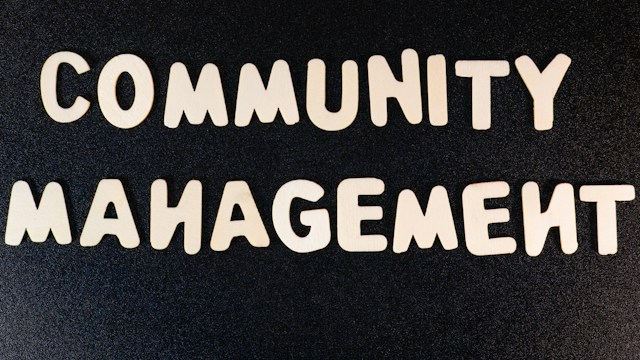In the ever-evolving world of digital marketing, online community management has emerged as an essential aspect for businesses. It is about more than just posting regular content on social media platforms. It is about creating a two-way conversation with your audience, fostering relationships, and building a loyal customer base. Online communities are virtual spaces where your brand can engage with its audience, answer queries, get feedback, and create a sense of belonging. Effective community management can help brands stand out in the digital landscape, enhance their reputation, and provide valuable insights into customer needs and wants.
Understanding Online Community Management
Online community management is the process of building, maintaining, and engaging with an online community. It involves monitoring and moderating social media platforms, forums, and other digital channels where your audience gathers. As community managers, you need to stimulate conversation, respond to customer queries, manage online reputations, and create a positive brand image.
Cela peut vous intéresser : How to Create an Authentic Brand Voice for Your Small Business?
An online community is a group of people who share a common interest or passion and interact with each other and your brand via digital platforms. They can be your customers, potential customers, or even just fans who admire your brand. They can provide valuable insights, feedback, and even aid in promoting your brand.
The Role of Content in Community Building
Content plays a pivotal role in building and sustaining online communities. As a community manager, you need to ensure that the content you share is relevant, informative, and engaging. Content can be in the form of blog posts, videos, infographics, podcasts, or any media that your audience finds engaging.
Lire également : What Are the Key Steps to Creating a Scalable Business Model?
Your content strategy should align with your brand’s mission, vision, and values. The content you create and share should reflect what your brand stands for. Engaging content can stimulate conversation, encourage shares, and foster a sense of community among your audience. It can also help establish your brand as a thought leader in your industry.
As you develop your content strategy, it is important to know your audience well. You should understand their needs, wants, and preferences. This will help you create content that resonates with them and drives engagement.
Engaging with Your Community
Engagement is the lifeblood of any online community. It refers to the interactions between your brand and your community members. These can include likes, shares, comments, and even private messages. As a community manager, it is your job to foster and encourage these interactions.
Engagement can help you build relationships with your community members. It can also provide you with valuable insights into their needs and preferences. By engaging with your community, you can learn what they like, what they dislike, and how you can improve.
One of the best ways to engage with your community is to encourage participation. You can do this by asking questions, creating polls, and encouraging user-generated content. You can also host live Q&A sessions, webinars, or even virtual meetups. These activities can help create a sense of belonging among your community members and make them feel valued and heard.
Leveraging Social Media Platforms
Social media platforms are the most common channels for online community management. They provide a space where your brand can interact with its audience in real-time. As a community manager, you need to understand each platform’s unique features and how to use them to your advantage.
Different social media platforms cater to different audiences and have different strengths. For example, Instagram is great for sharing visual content, while Twitter is ideal for real-time communication. LinkedIn, on the other hand, is perfect for professional networking and B2B marketing.
Choosing the right platform for your online community depends on your audience and your goals. You should choose a platform where your target audience is most active. You should also choose a platform that aligns with your brand image and your content strategy.
Monitoring and Moderating Your Community
Monitoring and moderating your online community is crucial for maintaining a positive and inclusive environment. As a community manager, you need to keep an eye on the conversations happening within your community. You need to ensure that they align with your community guidelines and your brand values.
Moderating your community involves removing inappropriate content, addressing negative comments, and resolving conflicts within your community. It also involves acknowledging positive feedback and showing appreciation for your community members.
Monitoring, on the other hand, involves tracking the performance of your community. This could include tracking engagement rates, community growth, and the overall sentiment towards your brand within the community. This data can provide valuable insights into your community’s health and the effectiveness of your community management strategies. Note that monitoring is not about controlling every conversation or stifling dissent. It’s about maintaining a healthy and respectful space where everyone feels heard and valued.
Remember, effective online community management requires a strategic approach, a deep understanding of your audience, and a commitment to fostering genuine relationships. It’s a long-term investment that, when done right, can deliver tremendous benefits for your brand.
Best Practices for Effective Community Management
Effective community management requires a combination of strategic thinking, customer service skills, and a deep understanding of social media. In this section, we will discuss some best practices that can help you effectively manage your online community.
First and foremost, authenticity is key. Ensure your interactions with community members are genuine and in line with your brand’s voice and personality. Remember, people want to engage with people, not robotic brands.
Next, always strive for transparency. Be open about your business practices and make an effort to communicate both good and bad news to your community. This will help build trust and loyalty among your members.
Listening is just as important as speaking when it comes to community management. Pay attention to the comments, questions, and discussions within your community. This will provide you with valuable insights into your customers’ needs and can help guide your business decisions.
Consistency is also crucial. Regularly post content, respond to comments, and engage with your community members. This will keep your community active and engaged.
Lastly, don’t forget the importance of measurement. Use social media analytics tools to track your community’s growth, engagement, and sentiment. This will help you gauge the effectiveness of your community management strategy and make necessary adjustments.
Remember, the aim is not to control the conversation, but to facilitate it. A successful online community is one where members feel valued, heard, and connected to the brand.
Conclusion: The Ultimate Guide to Online Community Management
In conclusion, successful online community management requires strategic planning, genuine engagement, and careful monitoring. It’s about creating an environment where community members feel a sense of belonging and are eager to interact with the brand.
A skilful community manager understands the importance of fostering a two-way conversation, creating engaging content, and being responsive to the needs of the community. They also know how to leverage the features of different social media platforms and measure the success of their community management strategy.
To master the art of community management, one may consider taking an online course or training program that provides a comprehensive overview of the best practices and techniques in this field.
Remember, successful community management is a long-term investment that can significantly enhance your brand’s reputation, customer loyalty, and bottom line. So, invest in it wisely, be patient, and watch your online community flourish.
In the end, effective online community management is about more than just managing a community – it’s about building a tribe of loyal followers who not only love your brand but also advocate for it. It’s about turning customers into brand ambassadors, and it’s this kind of genuine brand-customer relationship that will help your business thrive in the digital landscape.











